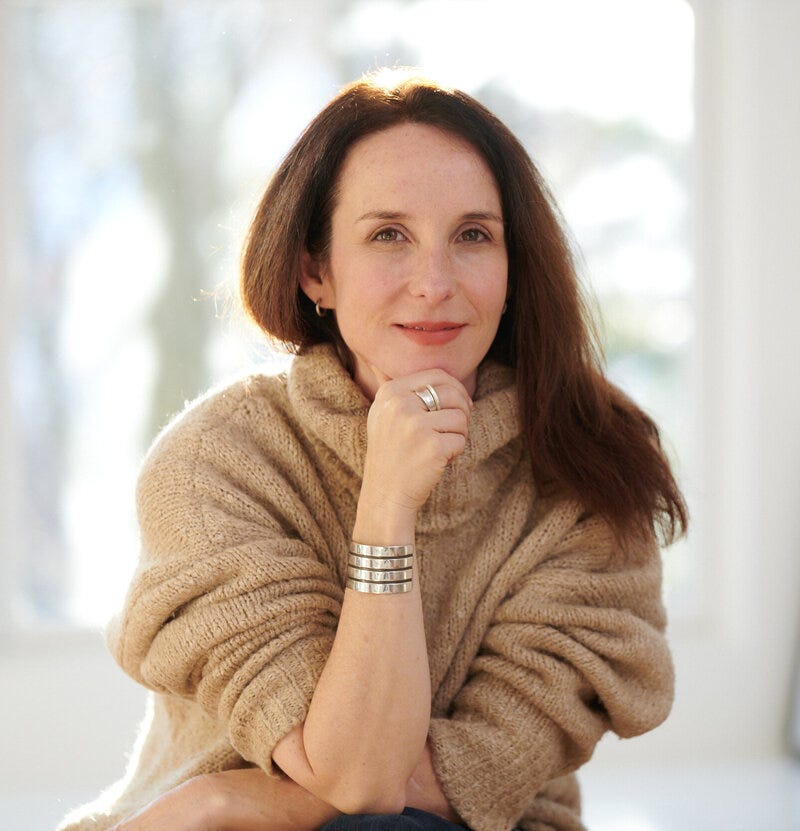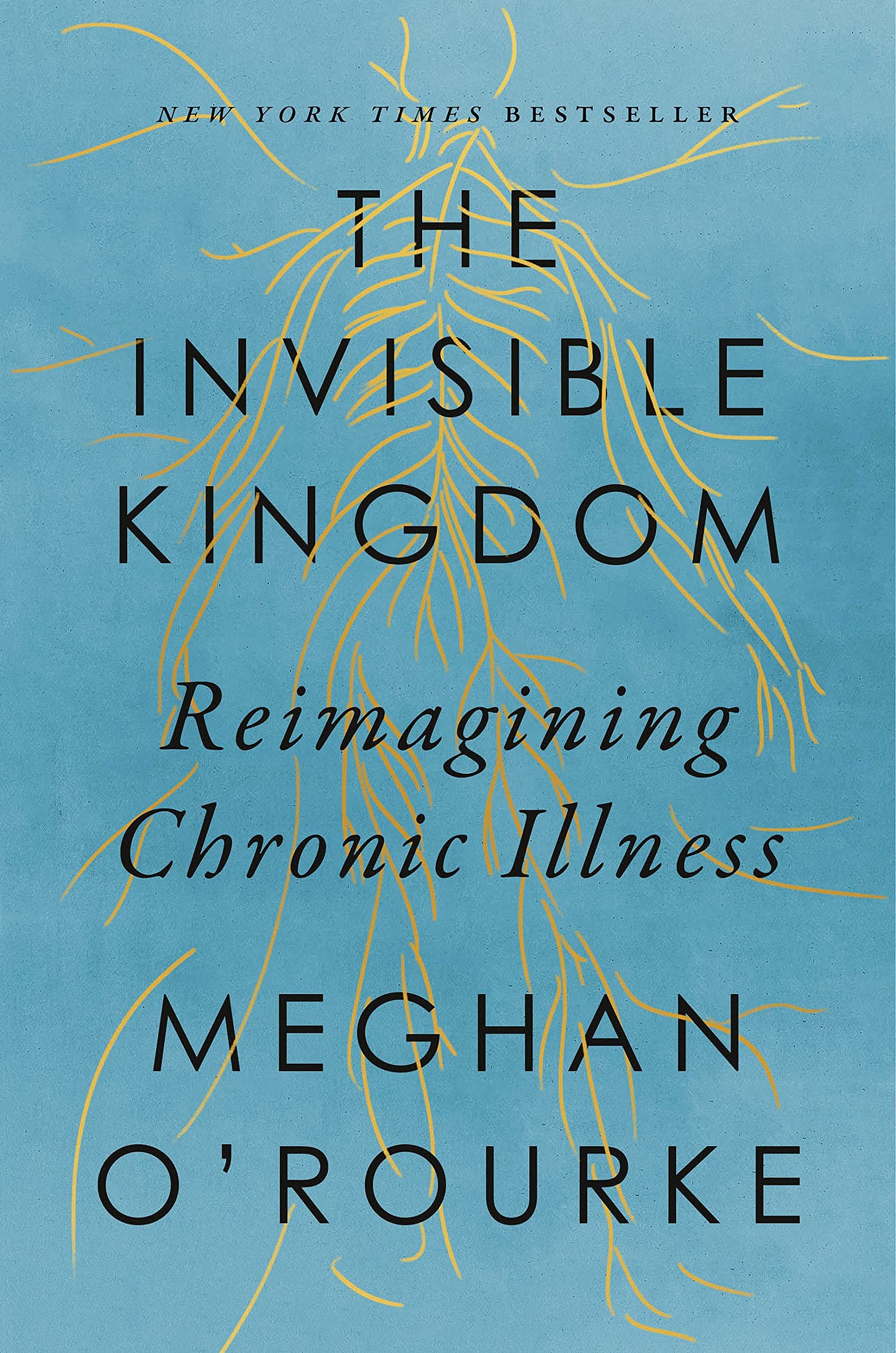As regular readers of this Substack know, I have been on a little journey of reading about and trying to deepen my own understanding of chronic illness. I learned so much from Meghan O’Rourke’s beautiful book, Invisible Kingdom, so I was grateful she agreed to answer a few questions for us all. Meet Meghan…
Courtney Martin: Why did you write this book? I can imagine living it was exhausting and all-encompassing enough, and part of you didn't want to spend your professional time also focusing on chronic illness.
Meghan O’Rourke: In my twenties, I got sick the way Ernest Hemingway says you go broke: “gradually and then suddenly.” I experienced mysterious symptoms like fatigue, brain fog, pain, and a racing heart. Doctors told me my labs looked fine. But my life was slowly dissolving into near-constant pain and suffering that I had no name for. In the end, I was diagnosed with untreated Lyme disease, among other conditions, and I got much better after treatment, but I was left with long term problems and still live with autoimmune disease and POTS.
The loneliness of this suffering created a burning need to try to understand what was happening—and why it took so long for the medical system to recognize that something really was wrong. I soon realized that I was one of tens of millions of Americans who live with what are often called “invisible illnesses”: that is, hard-to-measure and poorly understood conditions such as autoimmune disease, myalgic encephaloymyelitis/chronic fatigue syndrome (ME/CFS), post-treatment Lyme disease, long COVID, and more. (In my case, I was diagnosed with autoimmune disease and untreated late-stage Lyme disease, among other things.)
Being sick feels lonely, but it’s also a fundamentally social experience in that you can’t get the care you need unless you can successfully communicate your suffering.
In part, I wrote the book to deepen that awareness in both patients and medical professionals. So in fact I felt quite driven to write it: I find I’m drawn to subjects that I can’t let go of, where some widely accepted reality seems wrong to me, worthy of unpacking and studying. We’re often told to write out of cool, calm reflection, but I often find a little anger is the thing needed to get me going and drive me through the big lift a project takes. Anger, or a sense that I have questions I can’t yet answer.
You write, “My body felt like a vow that had been irrevocably broken.” Such a gorgeous way of putting it. Is there a way that you parent now so that your kids don’t have that same delusion? I wonder if it’s just a part of life--that every young person thinks they’re invincible, or if it’s something about American culture and the way that we parent that sets us up for that.
Great question. I don’t know that there is a way to parent so that children, at least able-bodied ones, have a sense of the contingency of their bodies. In a sense the delusion of health is the delusion (and in fact that great gift) of thinking your body is to some degree invincible, a medium in which “you” exist rather than the medium actually shaping your experience. But my kids and I do talk about chronic illness and bodies being different from one another.
What was the experience of reading Ross Douthat’s memoir like for you?
It was fascinating to see that another person had had a similar experience. I knew I wasn’t the only one of course, but there was something cathartic and important about seeing someone put similar experiences to words. Interestingly, the moment he describes on a beach diving into cold water and feeling bodily joy that can’t be erased, and the part of my book about the pilot flame of self that persists despite my suffering, seemed to me to be doing very similar things: trying to get at how and why one perseveres, the stubborn memory of a pre-sick self that remains.
One of the ways where I saw your memoirs as really diverting was that Douthat sort of stood up for metaphors of war when it came to his illness and you, on the other hand, ended up arguing that, “You cannot muscle your way to health when you are chronically ill. Rather, one way of coming to terms with an amorphous systemic disease is recognizing that you are sick, that the illness will come and go, and that it is not the kind of illness you can conquer.” Is there a mindset that you recommend to people who reach out to you for advice who are just starting on a journey of understanding and treating their chronic illness?
Yeah, I think the whole book is about letting go of the idea that we can always “conquer” an illness. We don’t love to talk about chronic illness in this country because we are so enamoured of the idea of muscling-through-it, etc. But the journey of this book is the journey toward accepting that such an approach may not work, especially in the case of energy-limiting illnesses like autoimmune disease, long COVID, ME/CFS, and Lyme disease, and more.
And in the book I try to build new kind of stories, stories about living with rather than overcoming illness. This, I think, is the real wisdom that illness can offer: the wisdom of knowing that hardship doesn’t always bring wisdom. To the degree that there is any “war,” I think it needs to be a collective, rather than individual, one. Too often the person with a chronic illness feels it is her problem to work on, even though we know that changes in environment, for example, are contributing to the rise of autoimmune diseases.
What are you hoping to work on next?
It’s a little too early to talk about the book I’m now working on, but I am continuing to write journalism about long COVID which is becoming an ever-more pressing problem--a second pandemic of chronic illness beginning to crest behind the first wave of acute illness. And then hopefully some lighter things!






Loved this, Courtney. I loved Meghan's book and am so grateful it's in the world.
I’m grateful for this reminder of living with & accompanying our bodies with chronic illness. As someone living with POTS, this feels like another iteration of the “care not control” theme. 💜